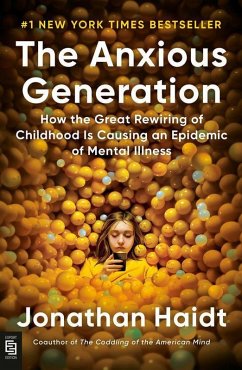
International Perspectives on Youth Conflict and Development

PAYBACK Punkte
45 °P sammeln!
International Perspectives on Youth Conflict and Development brings together in one volume essays discussing the social, political, and economic contexts of youth conflict across fourteen countries on seven continents. Distinguished contributors from around the world draw on research and interventions to describe young people's participation in armed conflict, fighting, and social exclusion from the time they enter the public sphere to adulthood, as defined in their localenvironments.Case studies include children involved in armed conflict in Mozambique, Angola, the Philippines, and Nigeria; y...
International Perspectives on Youth Conflict and Development brings together in one volume essays discussing the social, political, and economic contexts of youth conflict across fourteen countries on seven continents. Distinguished contributors from around the world draw on research and interventions to describe young people's participation in armed conflict, fighting, and social exclusion from the time they enter the public sphere to adulthood, as defined in their local
environments.
Case studies include children involved in armed conflict in Mozambique, Angola, the Philippines, and Nigeria; young people exposed to post-war tensions in Bosnia, Croatia, and South Africa, youth in the streets in Brazil and Colombia; Arab and Jewish youth in the ongoing crisis in Israel; children socialized to hate, mistrust, or exclude those of other ethnic, economic, or social identities in the United States, Germany, and Korea; and young people experiencing the dramatic political and
economic transition in China. Rather than focusing on character flaws and socio-cognitive deficits or other problems of individual youth, their families, or cultures, the volume examines youth conflict as a social practice embedded in local, national, and international processes.
The volume aims to shift the foundation of youth conflict study from the more typical focus on maturation, behavior, and personality to a characterization of youth as participants in society. It also expands the analysis of youth development to include societal problems such as political instability, unequal access to material resources, racism, and social injustice. Offering new insights about the interdependent spheres of conflict involving young people, this groundbreaking, international
compilation describes processes of a violent world rather than of violent youth.
environments.
Case studies include children involved in armed conflict in Mozambique, Angola, the Philippines, and Nigeria; young people exposed to post-war tensions in Bosnia, Croatia, and South Africa, youth in the streets in Brazil and Colombia; Arab and Jewish youth in the ongoing crisis in Israel; children socialized to hate, mistrust, or exclude those of other ethnic, economic, or social identities in the United States, Germany, and Korea; and young people experiencing the dramatic political and
economic transition in China. Rather than focusing on character flaws and socio-cognitive deficits or other problems of individual youth, their families, or cultures, the volume examines youth conflict as a social practice embedded in local, national, and international processes.
The volume aims to shift the foundation of youth conflict study from the more typical focus on maturation, behavior, and personality to a characterization of youth as participants in society. It also expands the analysis of youth development to include societal problems such as political instability, unequal access to material resources, racism, and social injustice. Offering new insights about the interdependent spheres of conflict involving young people, this groundbreaking, international
compilation describes processes of a violent world rather than of violent youth.













